-5 minutes. “Why don’t we bring them on stage?” says Fox News host Megyn Kelly, who has gone live with coverage of the debate she plans to moderate in just a few minutes. It all feels a bit improper, like watching someone get dressed before a performance. And the candidates don’t seem to like it too much, because they are not coming on stage.
-3 minutes. Finally they lumber out, men in dark suits. They stand before Kelly and the other moderators and a ravenous audience of thousands unsure what to do. “You guys nervous?” Kelly asks. Former Florida Gov. Jeb Bush immediately nods his head. No one else does. Real estate celebrity Donald Trump sticks out his hand and wiggles it back and forth. A little bit, he means.
0 minutes. Graphics signal the magical passage from a show about a debate that has not started to the start of a debate. All 10 candidates are behind their podiums now, and get introduced. Trump, in the middle, waves, not like a Miss America wave or anything. Wisconsin Gov. Scott Walker winks. Ohio Gov. John Kasich gets a standing ovation, because he is in Ohio. Fox Host Bret Baier tells the crowd to cheer at a volume “between a reaction to a LeBron James dunk and the Cleveland Public Library across the street.” Translation: As loud as you can.
3 minutes. First question is for everyone. Raise your hand if you are unwilling to pledge not to run an independent campaign and promise to support the GOP nominee. It’s a set up. Trump has no choice but to walk into the trap, amid boos. His hand goes up. He can’t really explain himself either. “If I’m the nominee, I will pledge I will not run as an independent,” he says. This is like vowing to not be alive if he dies.
5 minutes. Kentucky Sen. Rand Paul can’t contain his outrage. “This is what is wrong!” he shouts out of turn. “He’s already hedging his bets because he’s used to buying politicians.” Trump seems unfazed, but he has been wounded. The crowd is still booing. The man who walked on stage the frontrunner has just been outed as a possible turncoat.
6 minutes. Neurosurgeon Ben Carson gets the first why-do-you-suck question. He said Alan Greenspan was a Treasury Secretary, didn’t know the states in NATO and could not identify the Israeli political parties. “Aren’t these basic mistakes?” asks Kelly. “The thing that is probably most important is having a brain, and to be able to figure things out and learn things very rapidly,” the brain surgeon says, which sounds like an admission of guilt.
The Main Event: Donald Trump
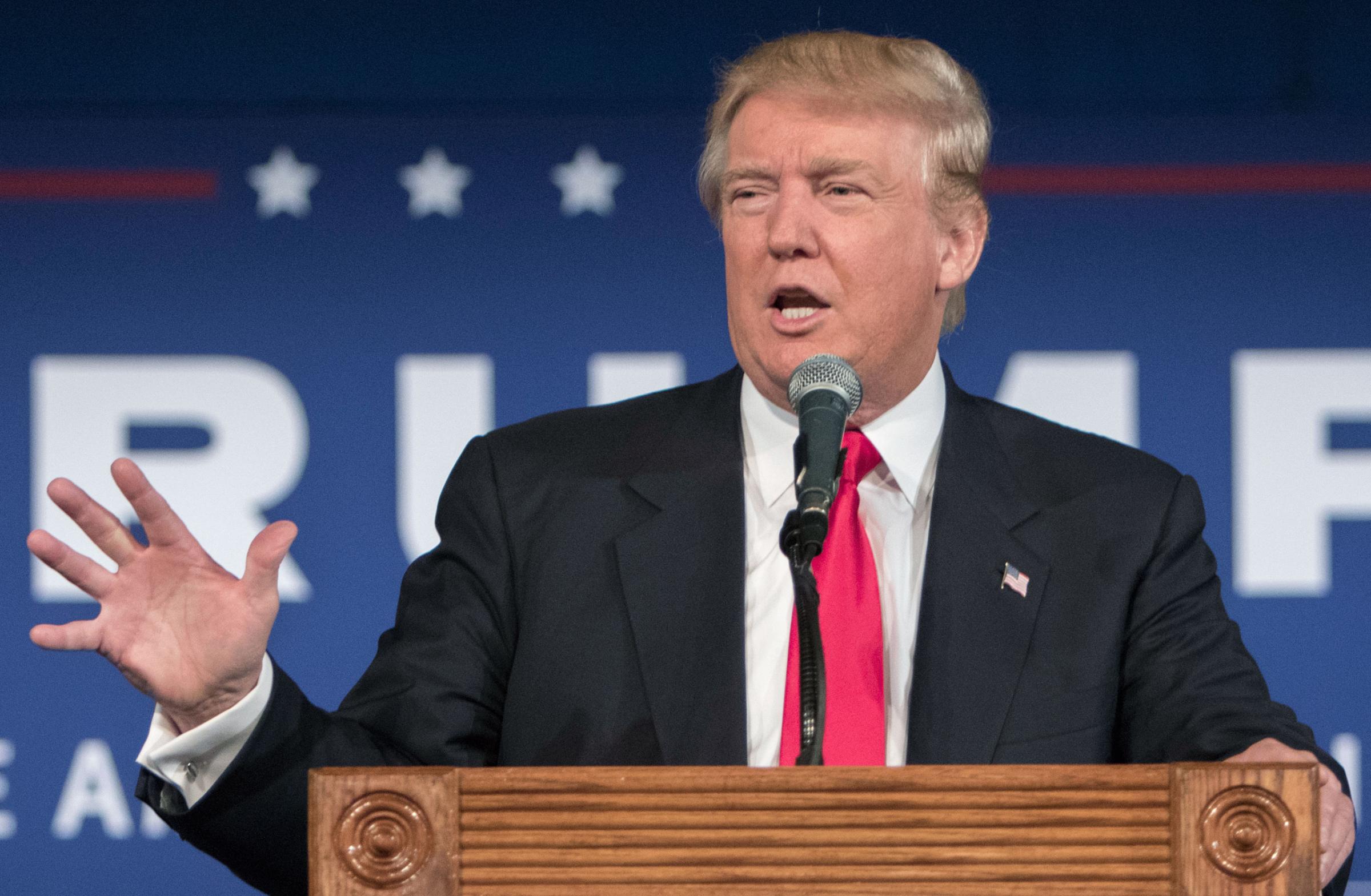
The reality television star and real estate magnate rocketed to the top of polls with his bombastic rhetoric. Now he has a target on his back, and a pack of struggling rivals are ready to take aim. Trump has no experience as a debater, an extremely thin skin and a taste for schoolyard insults. People want provocation from him, and he will deliver. But if he comes off as a cartoonish reality show character without an ability to handle actual policy, he might find that his frontrunner status erodes. Trump knows better than anyone how to roll out a new product. Now he has to show the stuff is worth buying.
The Main Event: Jeb Bush
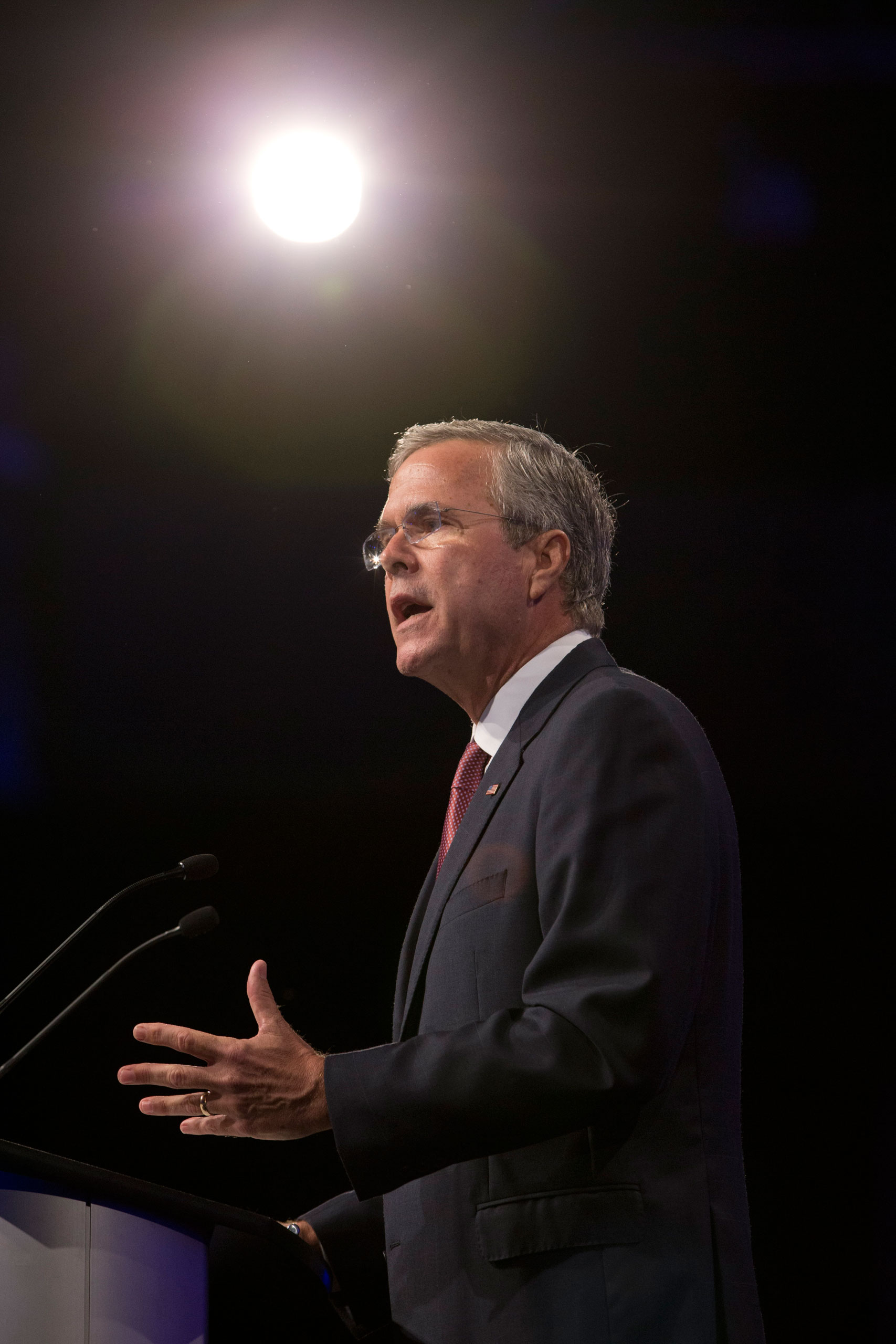
The establishment front-runner is sitting on more than $120 million in the bank, but has yet to show he can win over Republican voters. In a spectacle dominated by Trump, Bush wants to come off as cool, collected and informed. His pitch is that he is the adult conservative tough enough to take on Hillary Clinton, but with a sunny tone that broadens the party’s appeal. That’s a high bar. If he gets pushed around by Trump or fails to make an impact, then his allies may start burning their television ad money on early states sooner than he would have hoped.
The Main Event: Scott Walker
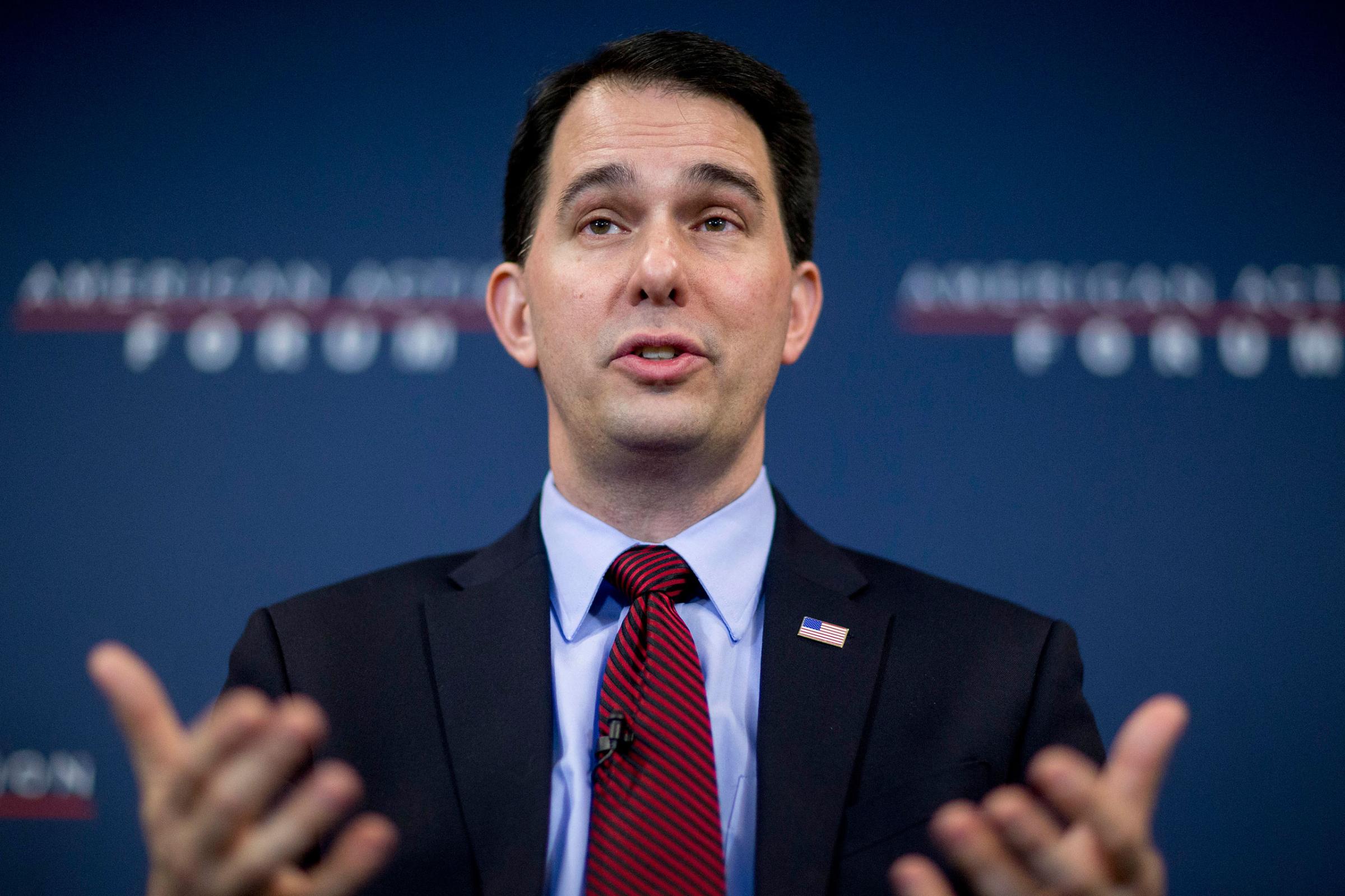
The Iowa front-runner has been an uneven performer, and Thursday night’s forum marks a significant test. He will try to emphasize his battle-tested record in Wisconsin, a blue state where he won three successive elections despite kneecapping powerful public-sector unions. Walker has sought to skirt controversial issues during the early phases of the primary campaign, so the Fox moderators are likely to put him on the spot. Look for rivals to raise his flip flops on issues like immigration.
The Main Event: Ted Cruz
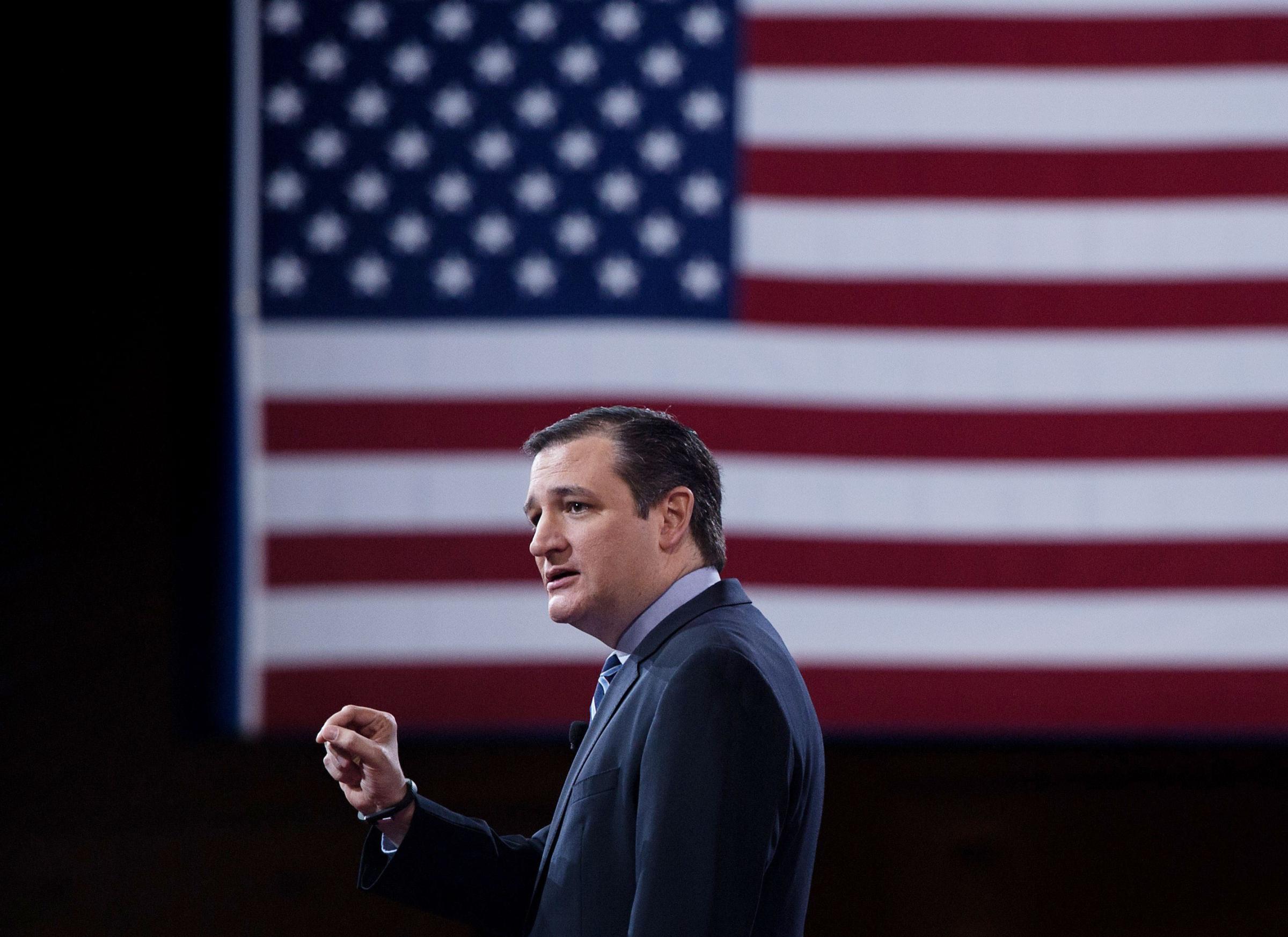
The conservative firebrand was a champion debater in college, but this is a different sport entirely. Cruz comes in with soaring expectations, but it’s unclear how his skills—and penchant for long-winded answers—will translate onstage. His challenge, at a minimum, is to be the second choice for every voter who wants a pure conservative. Look for him to make bold statements of principle, while avoiding direct attacks on Trump and Carson.
The Main Event: Ben Carson
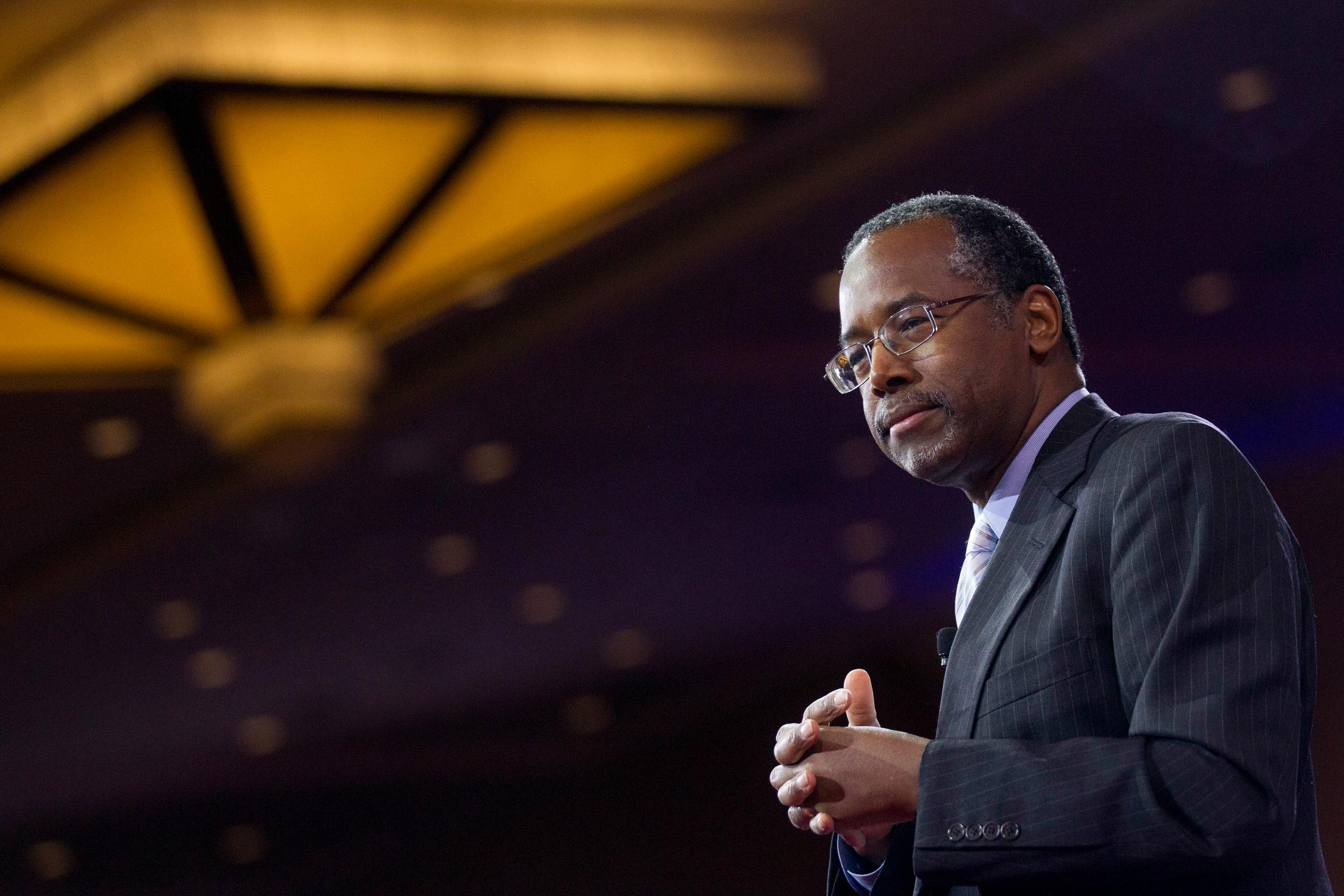
The retired neurosurgeon became a darling on the conservative speaking circuit during the past two years, but his unconventional style has been marked by oddball and inflammatory statements. Carson retains a cadre of die-hard supporters, but onstage he’ll have to prove that his candidacy is more than a fading fad. He has said several times he never wanted to run for the White House, and at times he seems to be running an accidental campaign. Now he has a chance to show voters that he has changed his mind.
The Main Event: Mike Huckabee
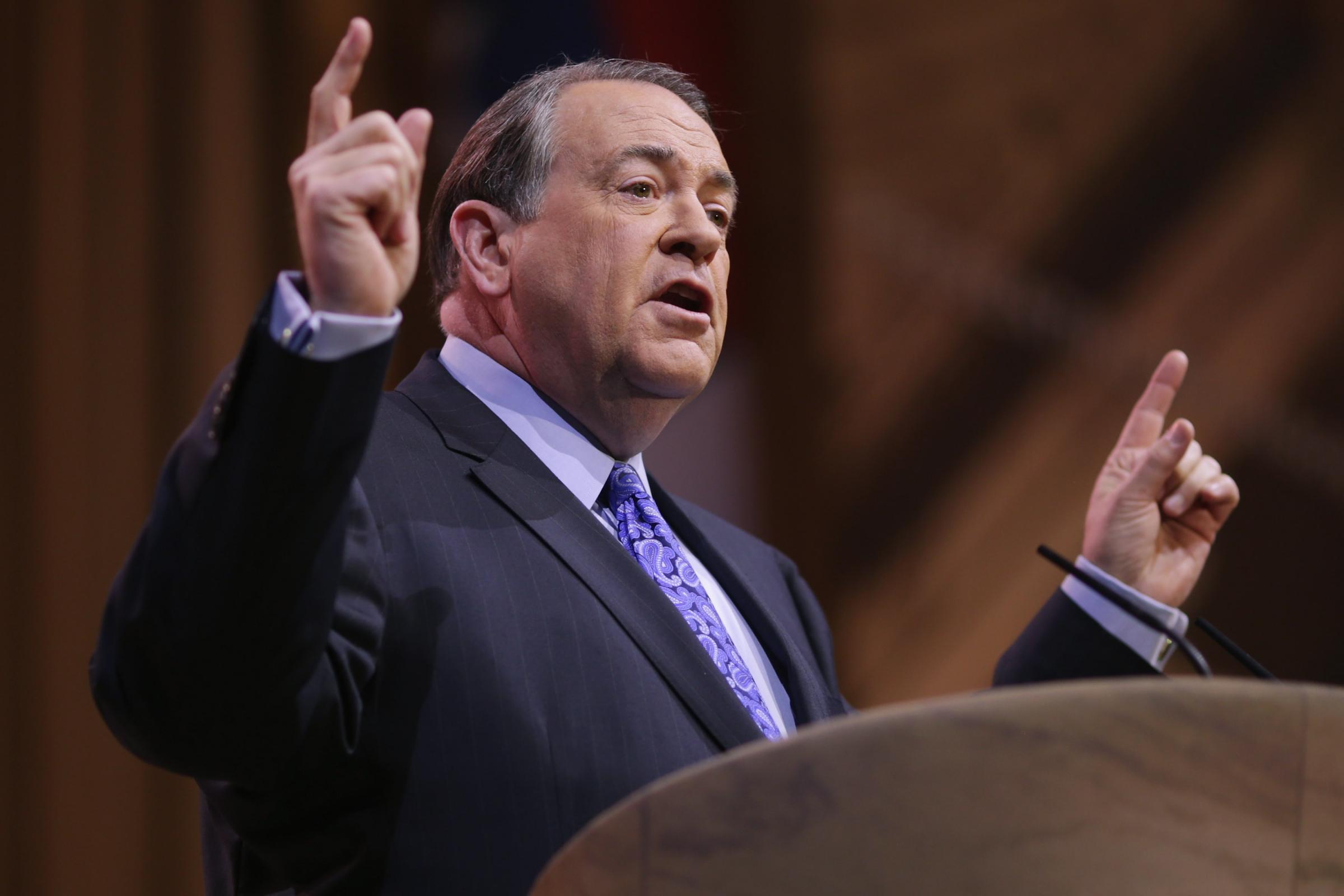
The former Arkansas Governor’s ability to overperform expectations in debates was key to his Iowa caucus victory in 2008, and his campaign is betting on another set of performances to push him out of the pack. Having worked in television his whole life, he knows how to work a camera, and convince viewers he is talking to them. His challenge this time is to convince Iowa caucus goers that he is not yesterday’s news. Look for him to possibly square up against Walker, who is already eating into his numbers. Also watch for the cues he sends to social conservatives on issues like marriage and religious freedom.
The Main Event: Marco Rubio
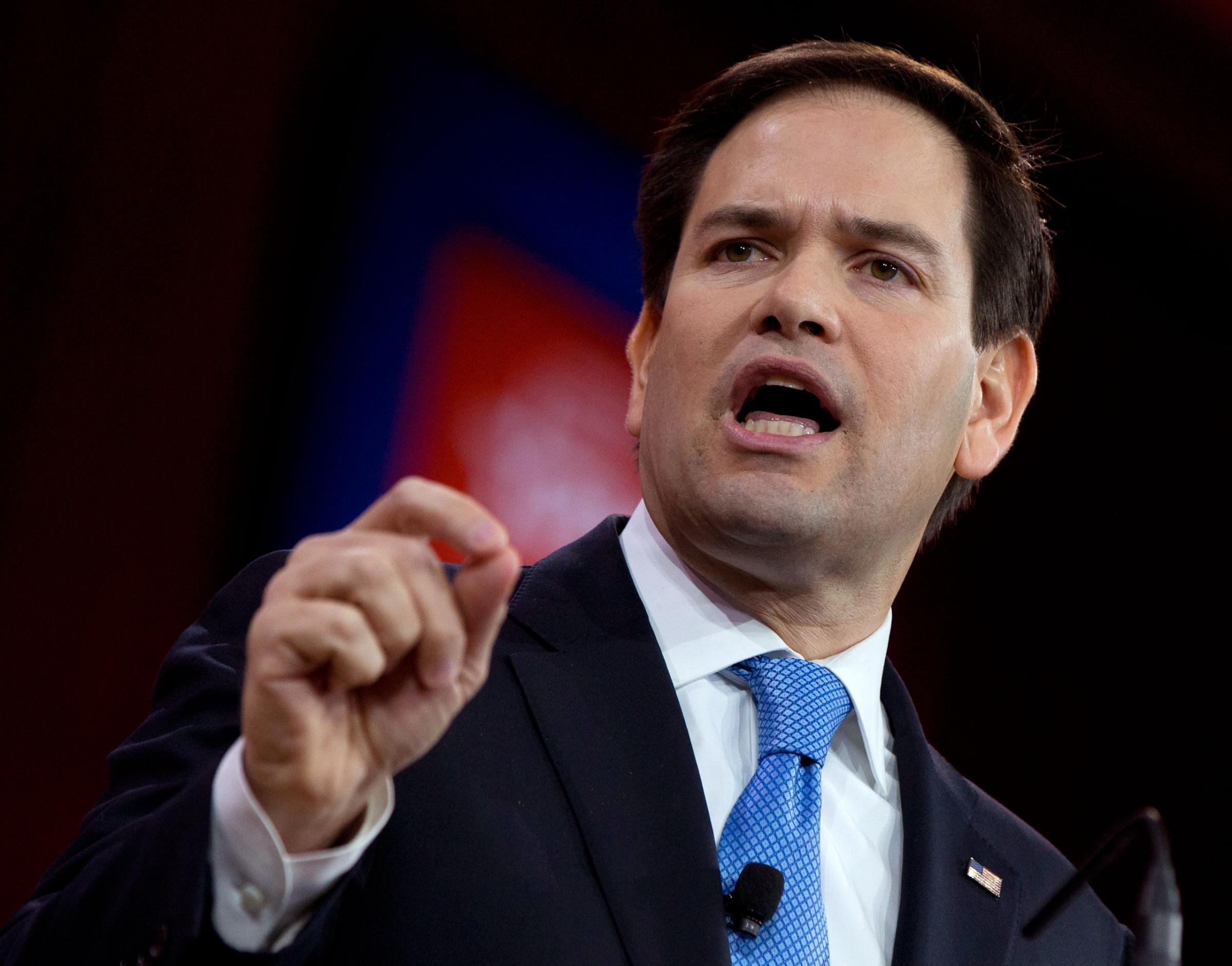
One of the most popular candidates in the field, Rubio is running a tortoise campaign, intentionally flying under the radar as rivals damage their appeal with constant skirmishing. The Florida senator wants to avoid confrontation and continue to position himself as a consensus second choice for now, hoping that he can take advantage if Bush and Walker stumble. But he also has to show up. For the past few weeks, outside of some ad spending on his behalf, he has barely been a presence in the campaign, and his poll numbers show it.
The Main Event: Rand Paul
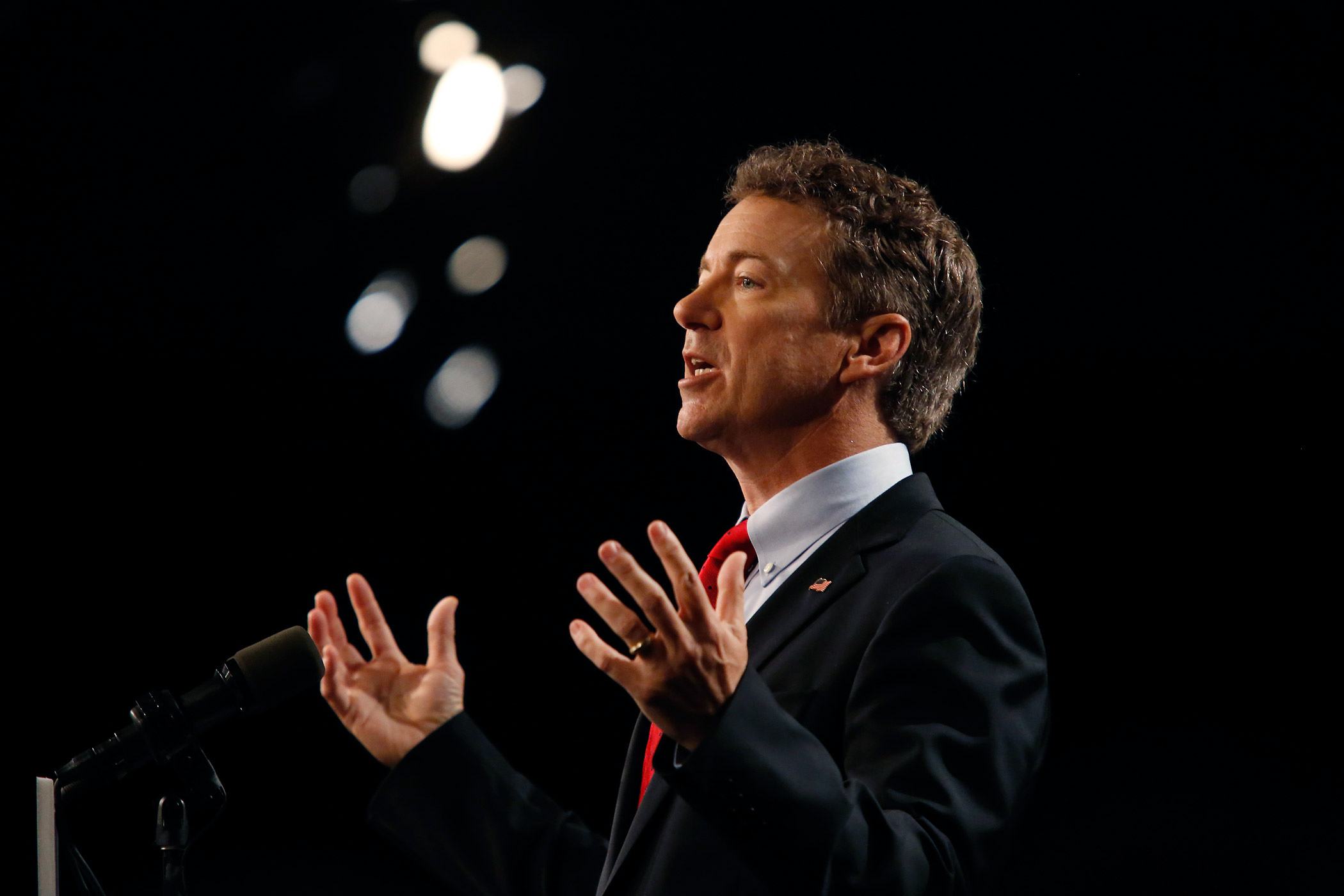
Amid the rise of the Islamic State, the libertarian Senator’s dovish foreign policy is growing out of synch with an increasingly hawkish GOP. A frequent target of Christie and Rubio, Paul is apt to become a target in the debate, and he has a habit of growing prickly when challenged. Slipping in the polls, Paul can give his candidacy a much-needed boost with a strong showing. This is a perfect chance for him to make the case that he can expand the party by attracting young voters and minorities.
The Main Event: Chris Christie
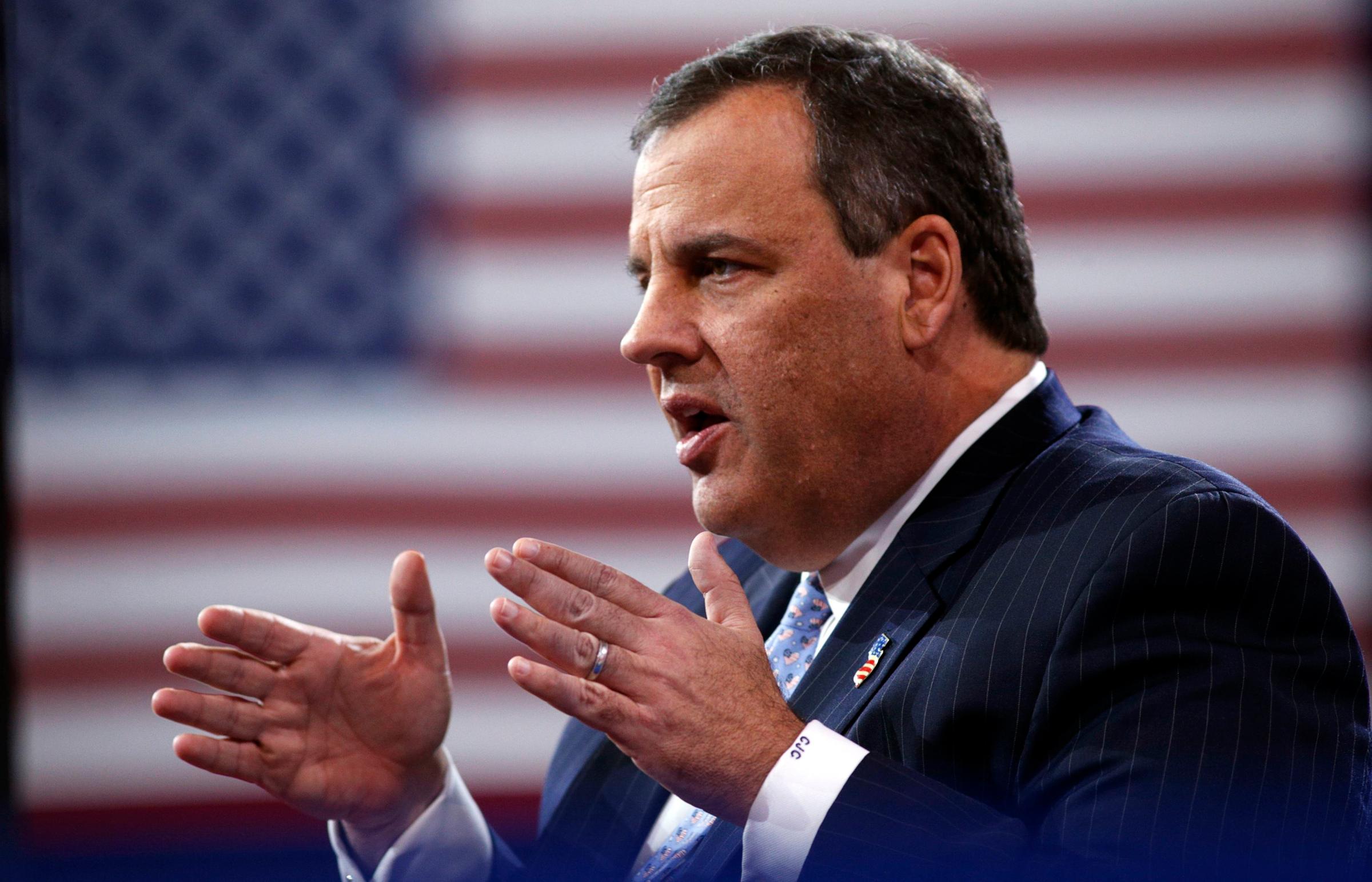
Once the GOP front-runner, the New Jersey Governor barely clinched his spot on the debate stage with a week-long Fox News blitz. Still tarnished by Bridgegate and distrusted by the party’s conservative wing, Christie will be looking for a spot to showcase his brash personality. If he doesn’t have a memorable moment, he’ll be in real trouble. A tussle with Trump could be in the cards.
The Main Event: John Kasich
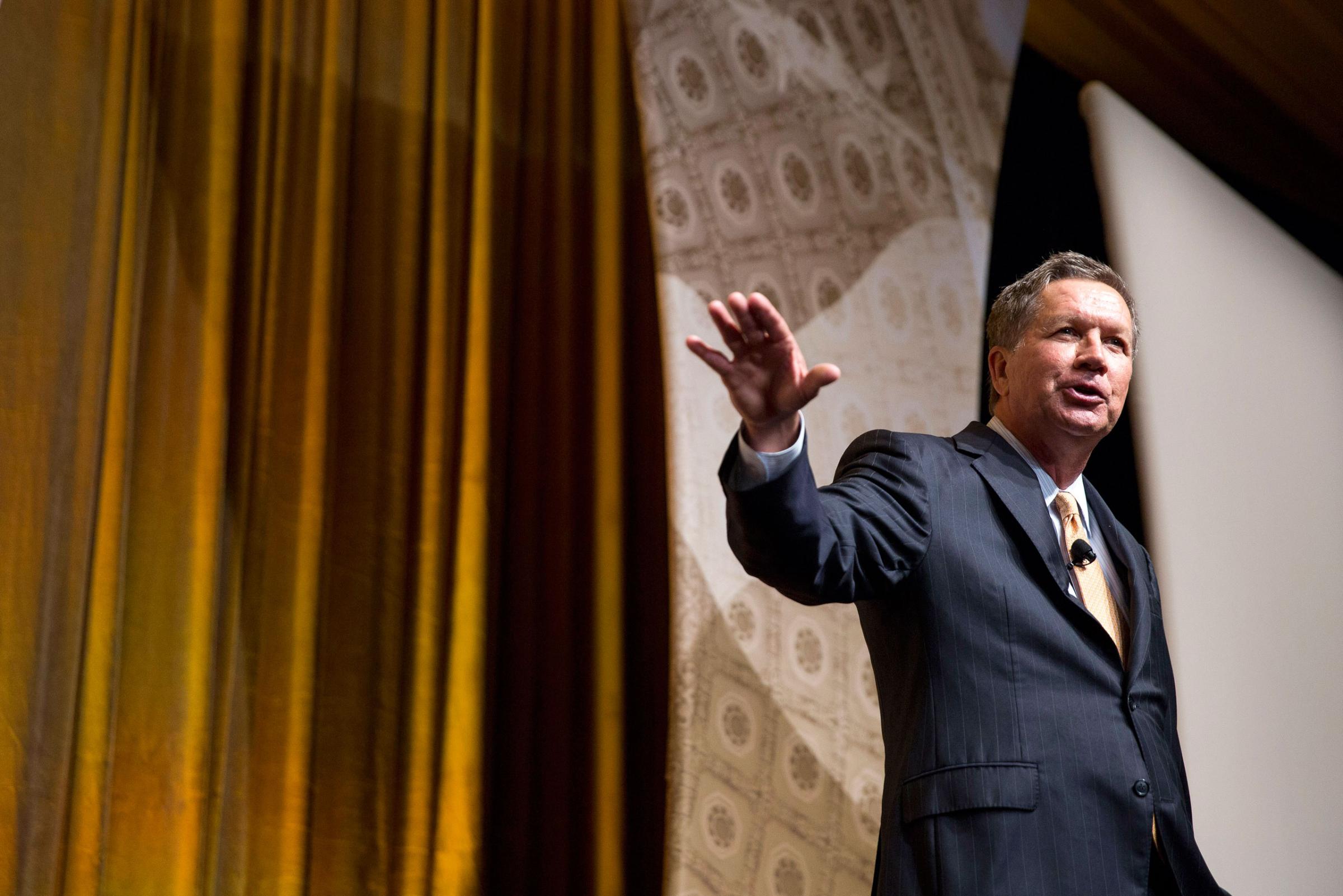
With among the lowest name-recognition of any candidate in the top 10, the Ohio Governor surged after his announcement two weeks ago to make the stage. Kasich needs to keep the momentum going in a home-state debate, and carve out a niche as an establishment-friendly, grownup alternative to Bush. He wants to stay on offense, even as some of his rivals are likely to paint him as too squishy on core conservative issues to win the debate. Look for him to try to distinguish himself from the rest of the field on policy and experience.
The Undercard: Rick Perry
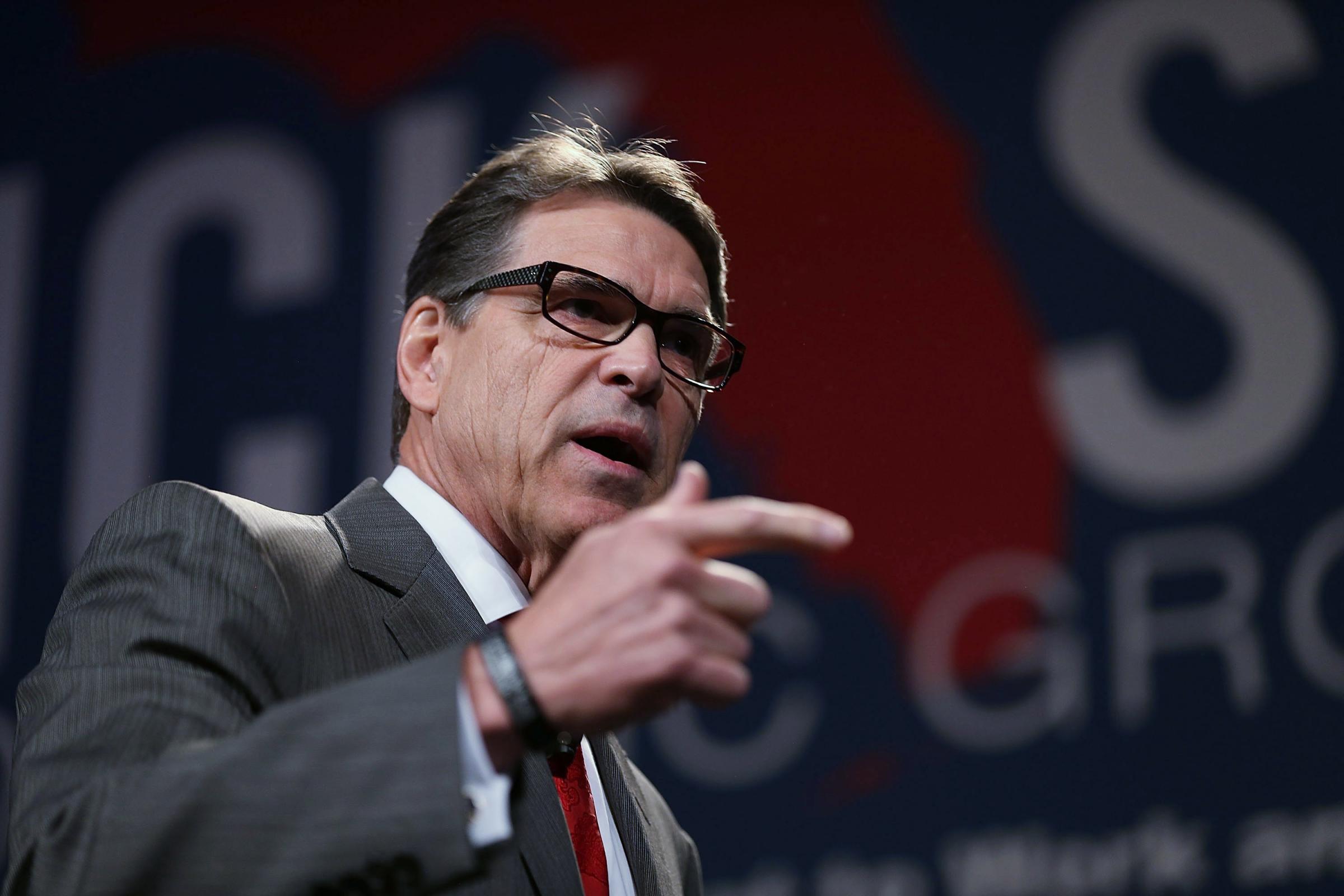
After narrowly missing the cut for the main event, Perry’s challenge is to soldier on with a strong performance. Avoiding another “oops” moment is the first step toward proving he really is a sharper candidate. At the center of the undercard, the former Texas governor gets the benefits of more airtime and a Trump-free environment to continue his political resurrection after his disastrous 2012 campaign. But he has fallen far since his first debate in 2011, when he was seen as a frontrunner. Beating up on Donald Trump will not be enough to get him to the big boy table in September.
The Undercard: Carly Fiorina
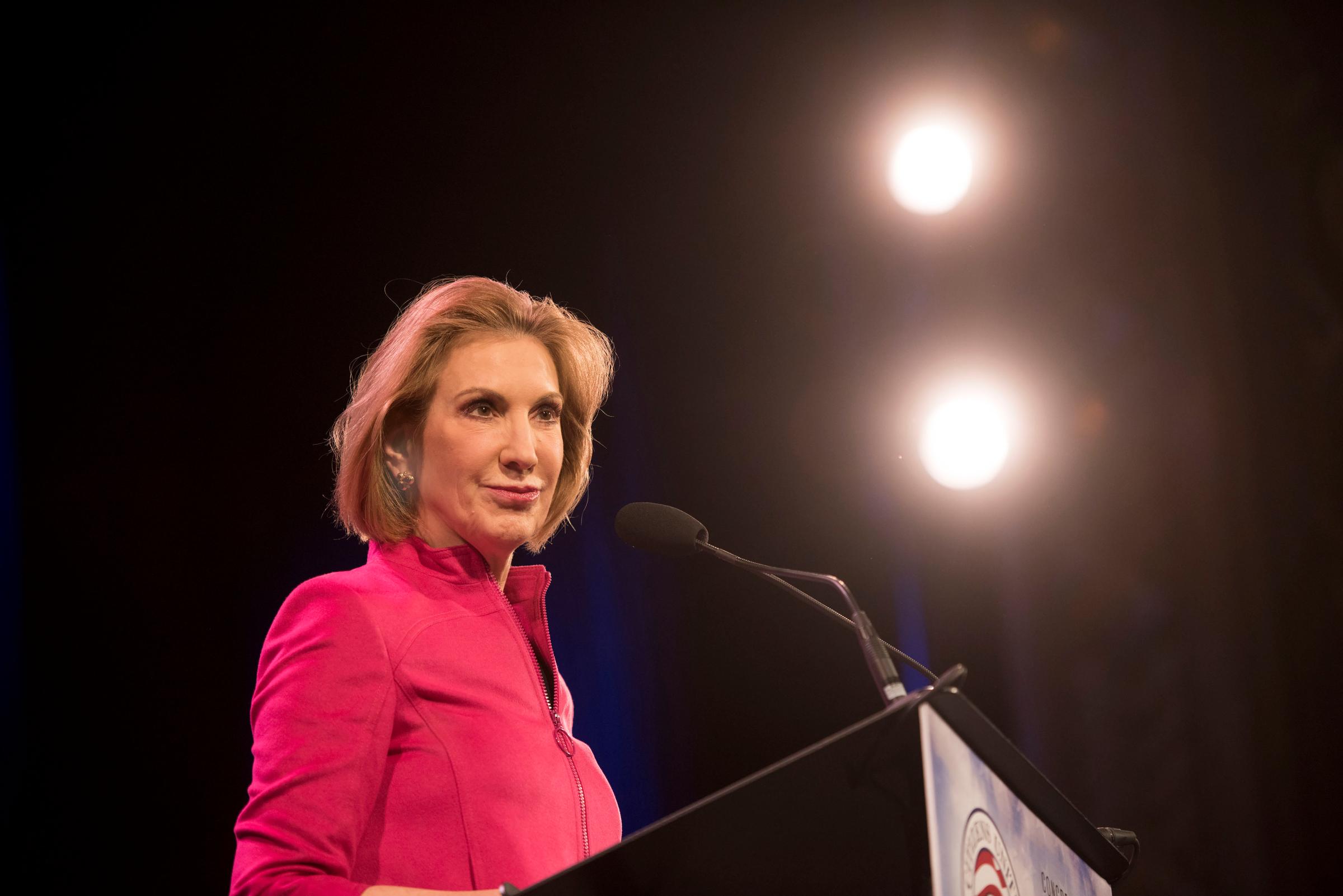
The former HP CEO hoped to make the main stage, but her campaign is now shifting the goalposts, telling supporters they are playing a long game for the nomination. The lone woman in the field, Fiorina has proven herself a caustic and effective Hillary Clinton critic. But she needs a wider repertoire to make the second debate next month. Crowds love listening to her, but few leave the room wanting to vote for her. She needs to show she has the gravitas, not just the one-liners, to take on Clinton.
The Undercard: Rick Santorum
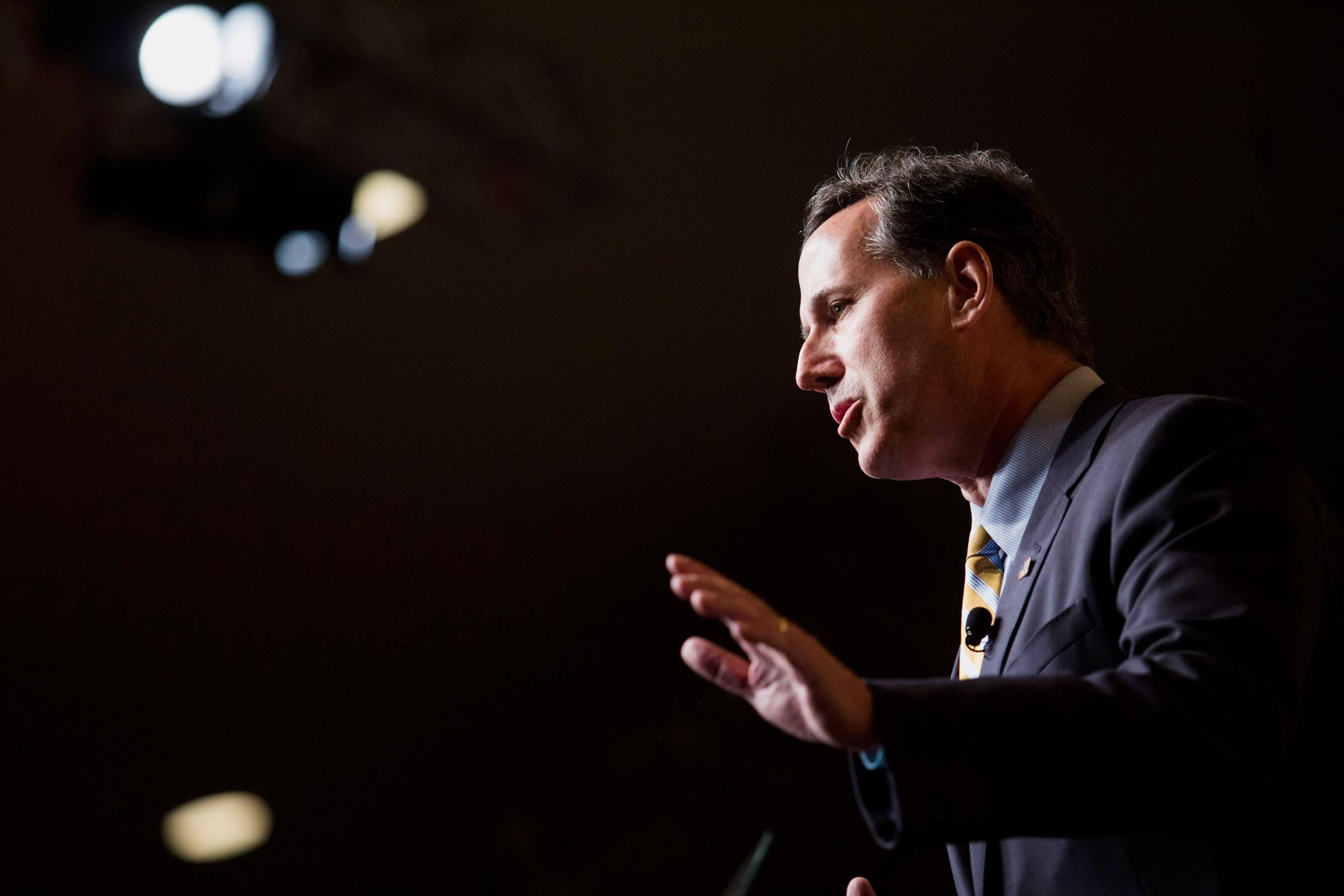
The 2012 runner-up’s campaign is in shambles, with little money trickling in and an exodus of top aides in recent weeks. He’s made barely a ripple on the stump, driving few headlines even in Iowa, where he’s been camped out in hopes of bottling the unlikely magic of the last campaign. No candidate has grumbled more about the RNC rules than the former Pennsylvania senator, who needs to stop complaining and start showing his campaign has life.
The Undercard: Bobby Jindal
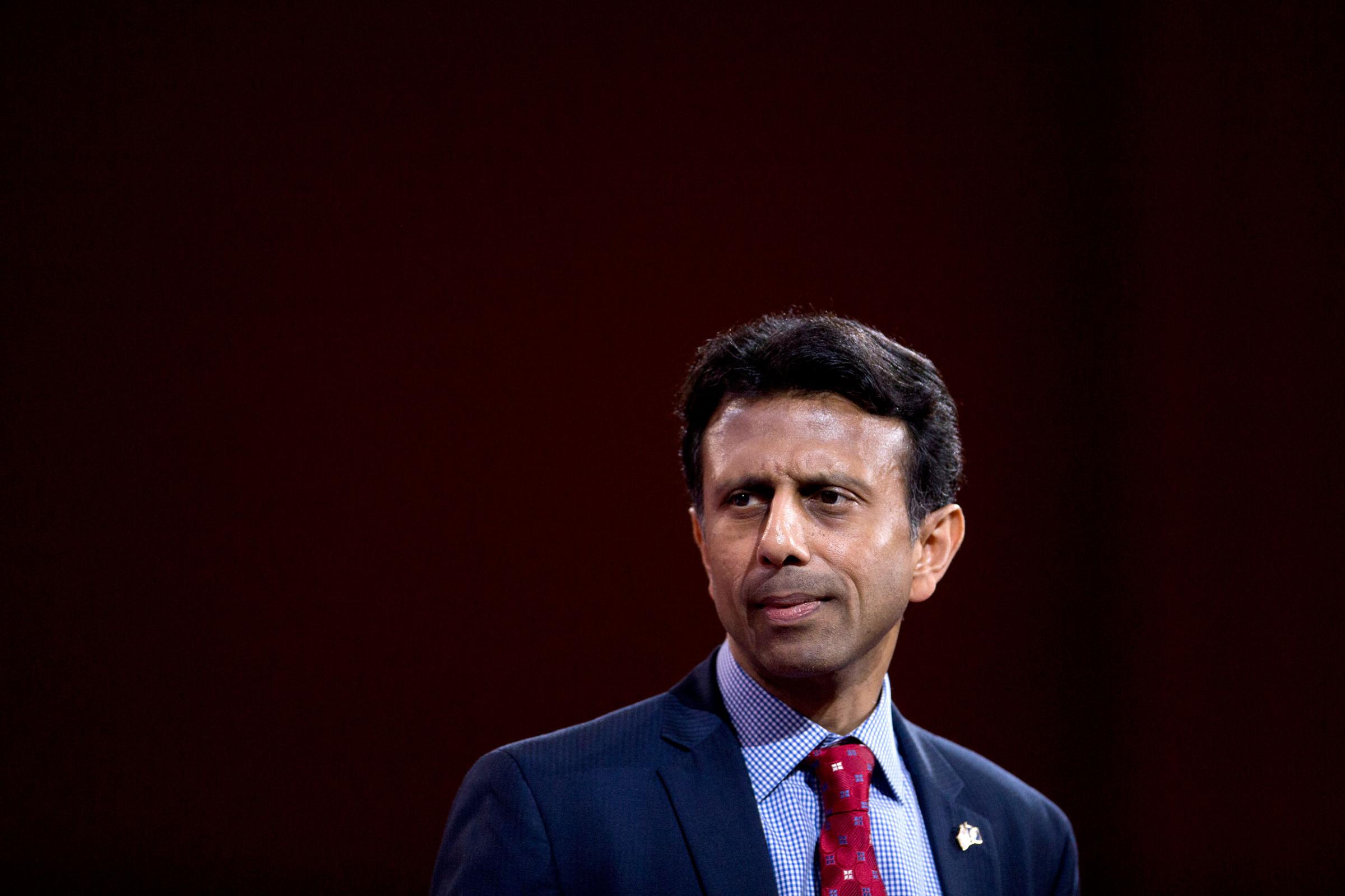
The Louisiana governor’s last performance before a national audience was his widely panned rebuttal to President Obama’s State of the Union in 2009. Jindal, a Rhodes Scholar, should do better Thursday night, but his Iowa-centric campaign has a long way to go to reach relevance. Cruz and Huckabee are already doing a better job at reaching the same voters he is after. The question is can he do something that will be remembered.
The Undercard: Lindsey Graham
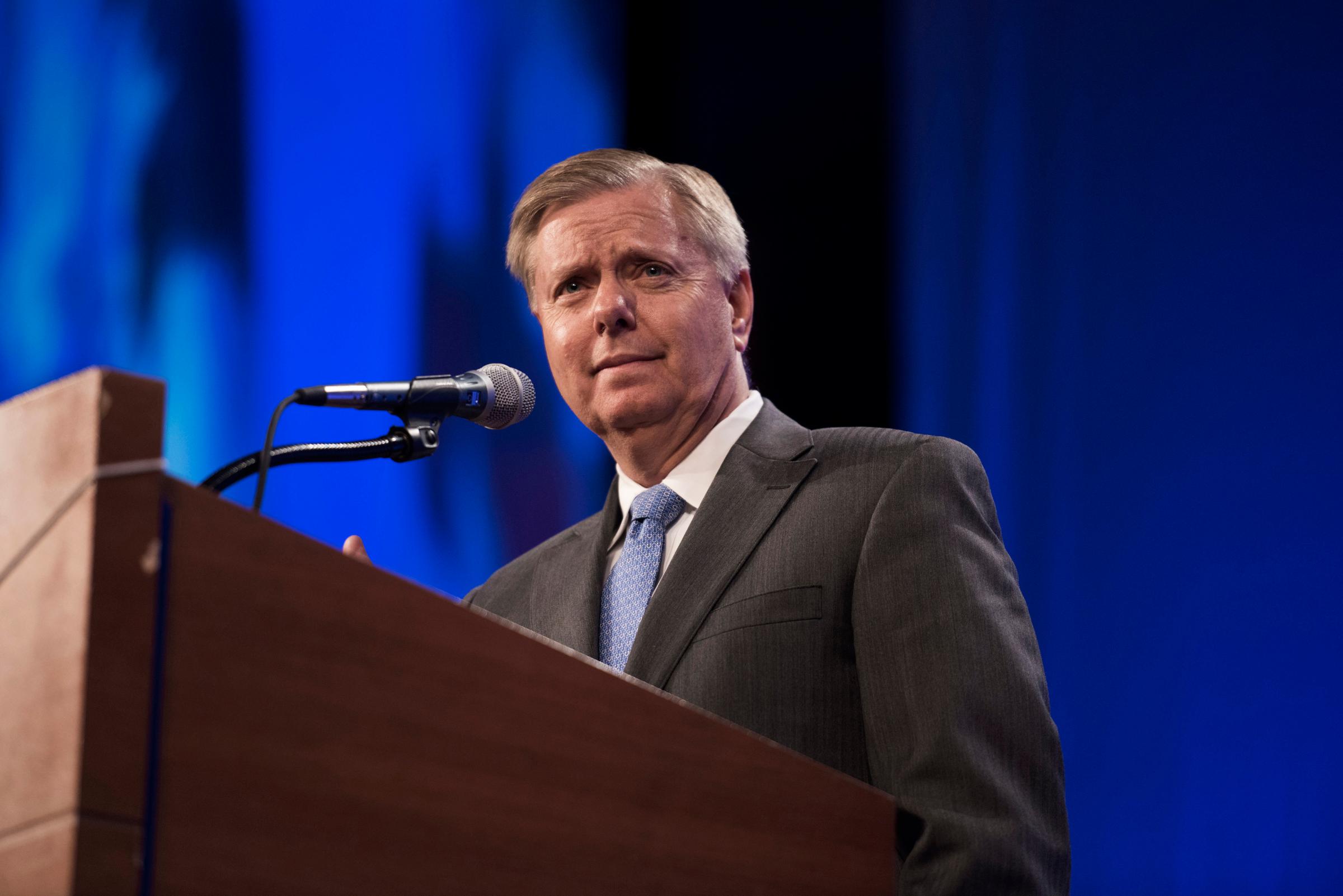
He’s quick with a quip and seasoned from his debates in the Senate, but Graham’s taste for bipartisan cooperation on issues like immigration makes him tough fit for the GOP base. Expect him to entertain; he’s clearly the funniest candidate out there. He also needs to make his mark on foreign policy. But he still needs to find a way to make the case that he is running for anything more than Scott Walker’s Secretary of Defense.
The Undercard: George Pataki
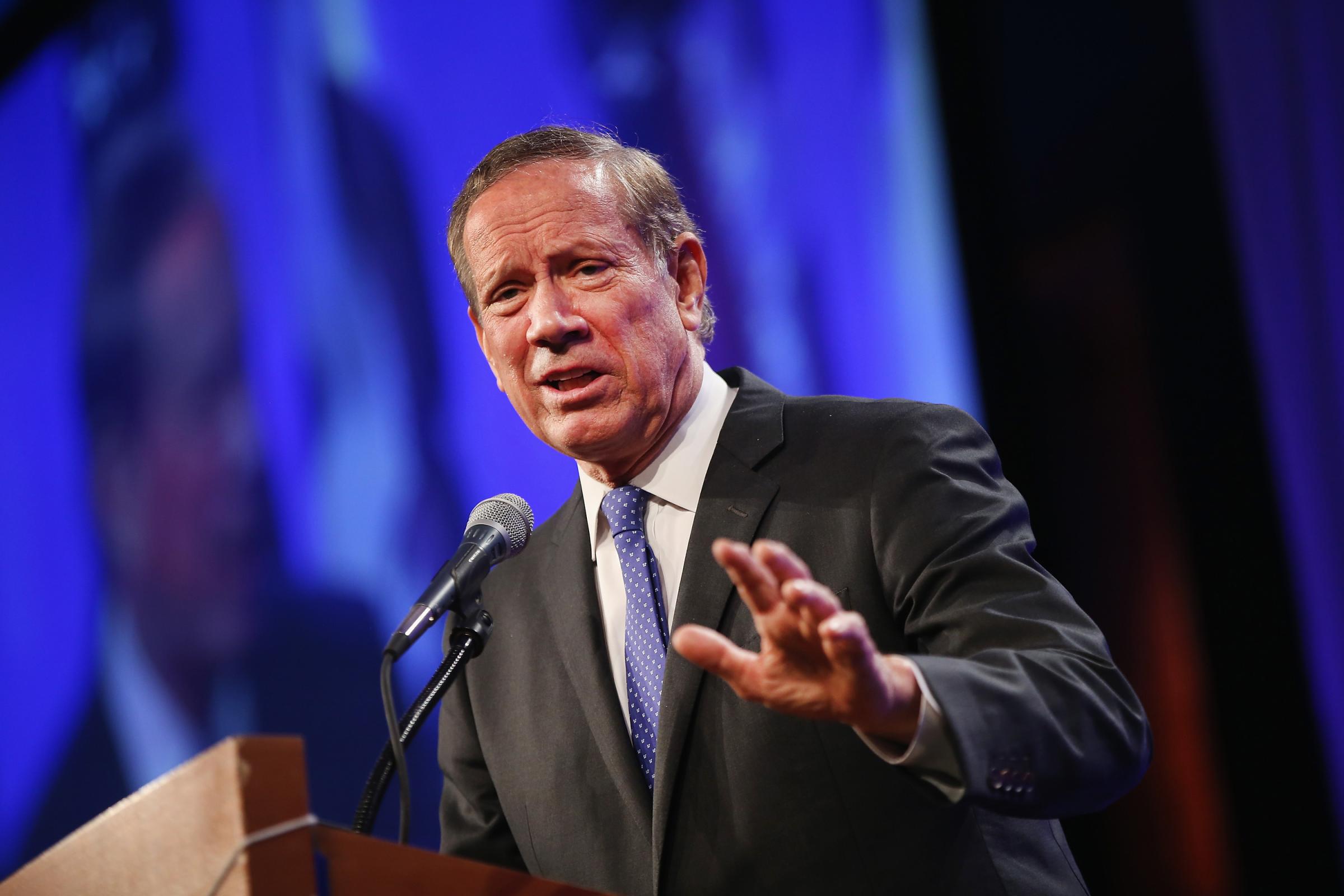
The former New York governor has been out of politics for a decade and the rust shows in his performances on the stump. Staking out a position as a moderate, Pataki been an ardent Trump critics. But denied the chance to go toe-to-toe with the reality television star, it’s hard to see how he breaks through. That may be fine with him. He seems to be just along for the ride.
The Undercard: Jim Gilmore
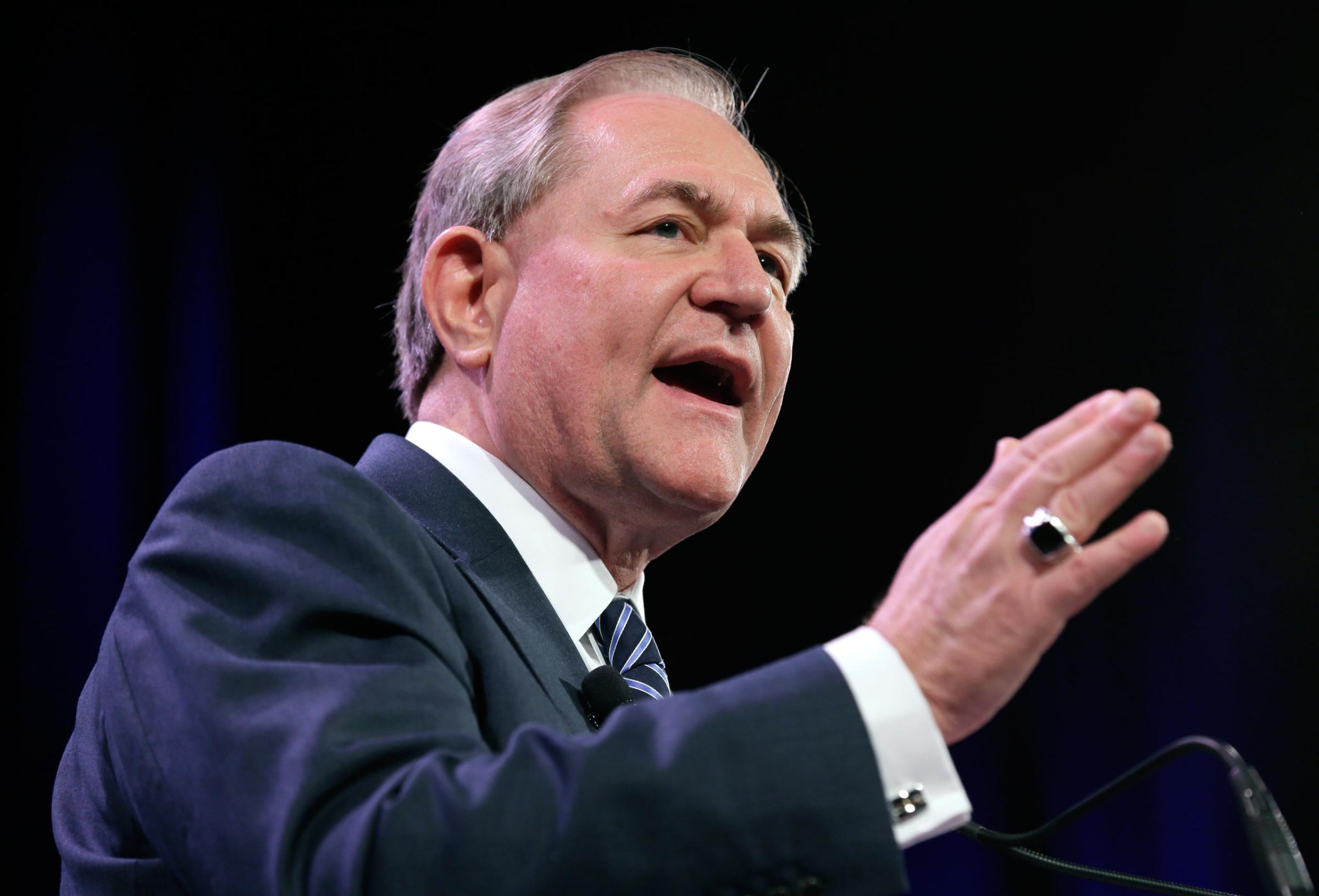
Who? The former Virginia governor scored an invite after Fox News lowered the threshold for admittance to those whose names are offered consistently in national polling. But Gilmore is barely above zero in those surveys, and has no strong base of support. Unless he pulls a surprise, this will likely be his last debate.
7 minutes. Florida Sen. Marco Rubio gets the next question about his lack of executive experience. His answer is a prose poem about the state of the economy, and his ability to match up against Hillary Clinton. He is better communicator than any Republican who ran for president in 2012. “If I’m our nominee, we will be the party of the future,” he says.
8 minutes. Bush goes next, with a question about the burdens of dynasty. He gets all the words right in his answer, but coming after Rubio’s polish there is something unsettled in the presentation. Bush is just not really comfortable on stage. It’s like he is playing a role he is still learning. “I am my own man,” he says. Yep.
10 minutes. The pummeling of Trump continues. “You’ve called women you don’t like fat pigs, dogs, slobs and disgusting animals,” says Kelly. “Only Rosie O’Donnell,” Trump counters, but it won’t get him out of the jam. “You once told a contestant on Celebrity Apprentice it would be a pretty picture to see her on her knees,” Kelly continues, like a surgeon. “What I say is what I say,” Trump says. “I’ve been very nice to you, although I could probably maybe not be based on the way you have treated me. But I wouldn’t do that.” Asked about his insults of women, he jokes about insulting a woman. He is what he is.
13 minutes. Texas Sen. Ted Cruz gets a chance to talk about how voters want politicians like him who “speak the truth.” New Jersey Gov. Chris Christie gets a chance to defend his economic record. Walker gets to talk about his pro-life views. Former Arkansas Gov. Mike Huckabee rounds it out by saying the next President should declare inseminated human eggs people under the Fifth and Fourteenth Amendments “at the moment of conception.” The Supreme Court, of course, might not go along.
19 minutes. More rapid fire. Paul declines an opportunity to attack his fellow Republicans for their foreign policy. Kasich defends his decision to expand Medicaid in Ohio. Bush defends his claim that most undocumented immigrants broke the law as “an act of love” for their families. Trump is asked for specific evidence that the Mexican government is sending criminals across the border. Trump starts saying “stupid” a lot. “Our leaders are stupid. Our politicians are stupid,” he says. “The Mexican government is much smarter.”
33 minutes. After a commercial break and some more immigration talk, Walker explains again why he changed his mind to oppose a path to citizenship for undocumented immigrants. “I actually listened to the American people.” By American people, he means Republican primary voters. In a recent NBC/Wall Street Journal poll, 47% of the country supported a pathway to citizenship, 17% supported some other legal status, and 32% supported deportation for undocumented immigrants.
35 minutes. Christie and Paul get into a shouting match over domestic spying powers. The big picture has to do with the National Security Agency’s program to collect metadata from virtually all American phone calls. The particulars have to do with the low regard these two men have for each other. “That’s a completely ridiculous answer,” Christie says to Paul. “Use the Fourth Amendment! Use the Fourth Amendment!” Paul starts shouting, coming across, as he often does, as younger than he actually is.
42 minutes. Bush is asked again if his brother’s war in Iraq was a mistake. He has his answer down now. “It was a mistake,” he says. “I would not have gone in.”
43 minutes. Walker gets a question about his claim that the U.S. needed to gain partners in the Arab world. “Which country not already in the U.S. coalition has the potential to be our greatest partner?” Kelly asks. It’s another killer question. She is wicked good. Walker bumbles through a response. “You look at Egypt,” he says, “probably the best relationship we’ve had in Israel, at least in my lifetime, incredibly important.” It’s hard to figure out what he meant to say.
44 minutes. The Fox News moderators won’t let up. Carson says he would not tell anyone if he liked waterboarding. Trump refuses to denounce his past support for single-payer healthcare in the Canadian model. This infuriates Paul again. “News flash, the Republican Party’s been fighting against a single-payer system,” he says, sounding once again like a teenager. Trump has a comeback. “You’re having a hard time tonight,” he says. Then he goes on to brag about all the money he has given politicians, and how he got Hillary Clinton to come to his daughter’s wedding. “I will tell you it is a broken system,” Trump says. The quid pro quo is just too easy.
49 minutes. Walker doesn’t like the way this is going. “We should be talking about Hillary Clinton,” he says, interupting. “Everywhere in the world that Hillary Clinton touched is more messed up today.” He apparently still feels bad for bungling his last foreign policy question. But the Fox moderators cut him off.
50 minutes. Huckabee talks about shrinking government. Carson talks about remaking the tax system to reflect biblical tithing. Rubio and Bush circle around the Common Core debate. And we get a second commercial break.
58 minutes. This is the halfway point. It feels like we have been going all day. But the issues just keep coming. Kasich gets to do his balanced budget speech. Bush gets to do his 4% economic growth speech. Walker has to defend his job creation record in Wisconsin. Huckabee and Christie get into a friendly back and forth about fixing entitlements. Huckabee, a preacher who knows how to wake up the pews, pitches a new consumption tax because it would force “illegals, prostitutes, pimps, drug dealers,” to pay taxes. “Sound’s like somebody’s a little R-rated,” Kelly observes. No one had “pimp” in their drinking game.
70 minutes. Everything moves so fast. Trump has to defend his businesses that went bankrupt. Huckabee gets to attack President Obama for attacking him for calling the Iran nuclear deal a step toward the gas chamber for Israel. Paul gets to call himself a Reagan conservative, which is not exactly spot on. Then Rubio is forced to defend his support of a bill with a rape and incest exception for an abortion ban. Rubio denies that he supports rape and incest exceptions, which could be a problem for him if he reaches the general election.
76 minutes. Trump talks about his own conversion on the issue of abortion. “Friends of mine years ago” almost aborted a child. “And that child today is a total superstar,” Trump says. Coincidentally, Trump’s own son, Baron, was born around the time of his change of heart. Just saying.
79 minutes. Bush says he never called Trump names like “clown” and “buffoon” to a donor, as has been reported, and Trump says of Bush, “He is a true gentleman. He really is.”
80 minutes. Kasich gets applause for saying that he attended a gay wedding, and would love his daughter just the same if she was gay. This is a big shift from the 2012 cycle, when a gay serviceman was booed for asking a question about gay rights.
86 minutes. More talk of Iran, of cyber attacks, of Russian President Putin being a bad guy and Obama being weak. Nothing surprising, except maybe that Walker answers a foreign policy question fluently.
92 minutes. Huckabee is asked about transgender rights in the military. “The military is not a social experiment,” he says. “The purpose of the military is to kill people and break things.” A lot of dark places you could go with that logic.
96 minutes. A bunch of candidates are asked about God. They all profess faith and devotion.
106 minutes. The closing statements basically continue the pattern. Rubio is the best at delivering his. Huckabee is funny. Trump is self-promoting. Bush is slightly awkward but passable. Carson brags about all the brains he worked on. Walker sounds disingenuous. “I’m a guy with a wife and two kids and a Harley,” he says, leaving out the fact that he is also a governor with personal security. But the bottom line, this is a strong Republican field, much stronger that the people who filled the stage in 2012.
108 minutes. It’s finally over. “Are you relieved?” asks Kelly. Yes.
Click here to read What You Missed While Not Watching the Republican Undercard Debate.
More Must-Reads from TIME
- Why Trump’s Message Worked on Latino Men
- What Trump’s Win Could Mean for Housing
- The 100 Must-Read Books of 2024
- Sleep Doctors Share the 1 Tip That’s Changed Their Lives
- Column: Let’s Bring Back Romance
- What It’s Like to Have Long COVID As a Kid
- FX’s Say Nothing Is the Must-Watch Political Thriller of 2024
- Merle Bombardieri Is Helping People Make the Baby Decision
Contact us at letters@time.com